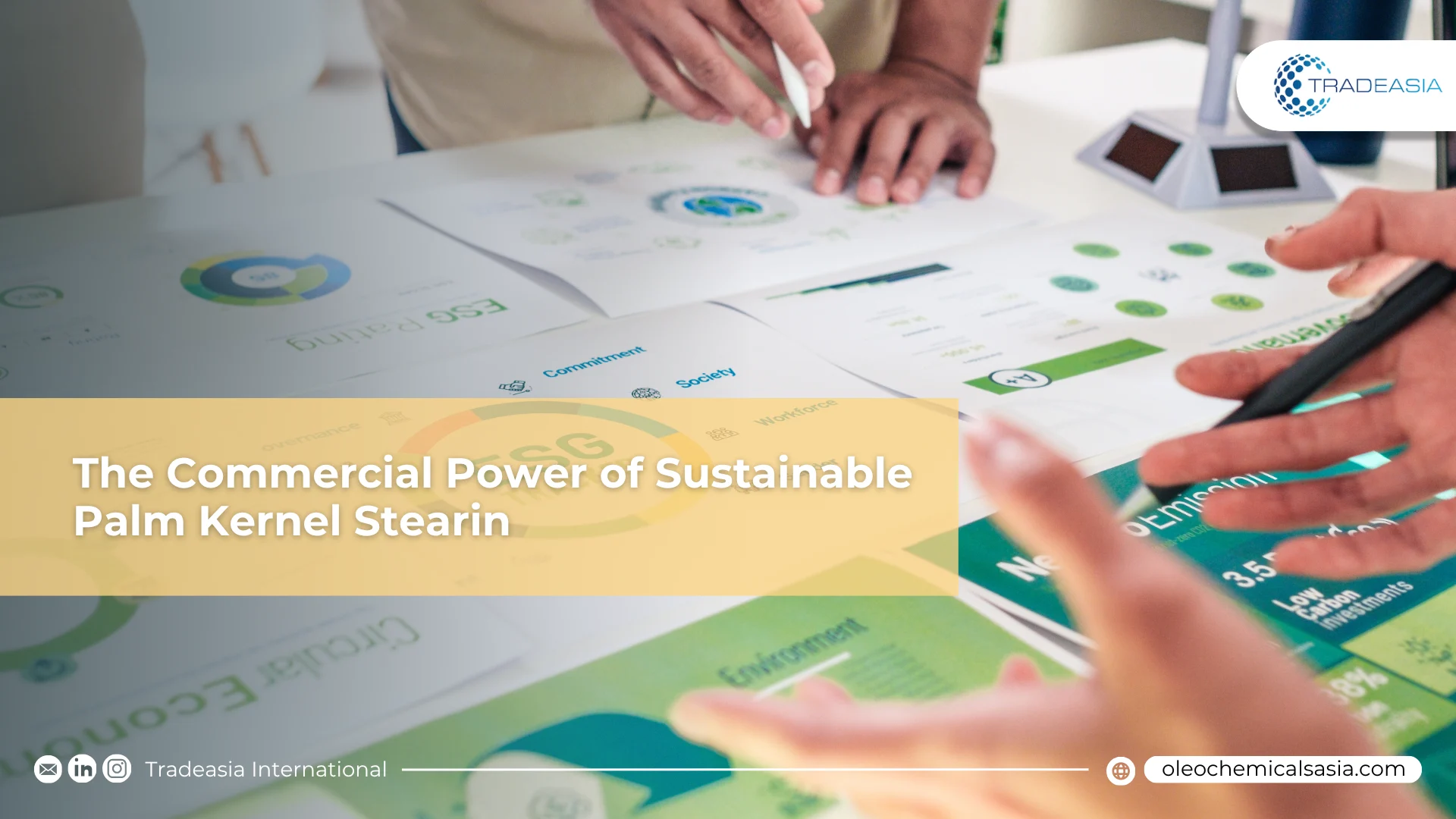Profitability with Purpose: The Commercial Power of Sustainable Palm Kernel Stearin

Table of Content
-
Unlocking Access to the World's Biggest Buyers
-
A Clear Return on Investment and Reputation
In the modern global economy, the conversation around sustainability has shifted from the realm of ethics to the core of business strategy. For companies in the palm oil value chain, a commitment to sustainability is no longer just a line in a corporate report; it's a powerful driver of profitability, market access, and brand resilience. Navigating this new landscape to secure a reliable supply of certified products requires a partner like Tradeasia International, who understands the commercial intricacies of the sustainable palm and oleochemical market.
Unlocking Access to the World's Biggest Buyers
The most compelling reason to embrace sustainability is the clear and resounding demand from the market. The world’s largest and most influential buyers have spoken. More than 350 major consumer goods companies and retailers—representing a colossal $2.5 trillion in collective purchasing power—have established firm commitments to deforestation-free sourcing. This has effectively created a premium, high-volume market that is walled off to non-certified suppliers. For any producer or trader, failing to meet these standards is no longer a strategic choice; it is a direct barrier to accessing the most valuable segments of the global market.
In today's market, the most resilient supply chains are not the cheapest, but the most responsible.
A Clear Return on Investment and Reputation
Beyond market access, the financial and reputational returns on sustainability are quantifiable. As of Q3 2025, certified sustainable palm kernel products consistently command a price premium of $40 to $85 per metric ton over conventional supplies. This "green premium" is a direct financial incentive that rewards producers for their responsible practices. Furthermore, a sustainable supply chain is a powerful risk management tool. A recent analysis revealed that companies with verified sustainable sourcing policies face a 40% lower risk of damaging, brand-related environmental controversies and score an average of 25% higher on critical ESG (Environmental, Social, and Governance) investor ratings, which directly influences their ability to attract investment.
Sources:
-
The Business Case for Sustainable Oleochemicals - Oleochemicals Asia
-
RSPO (Roundtable on Sustainable Palm Oil) Market Data & Impact Reports - RSPO
-
CDP (Carbon Disclosure Project) Global Supply Chain Report - CDP Worldwide

Leave a Comment